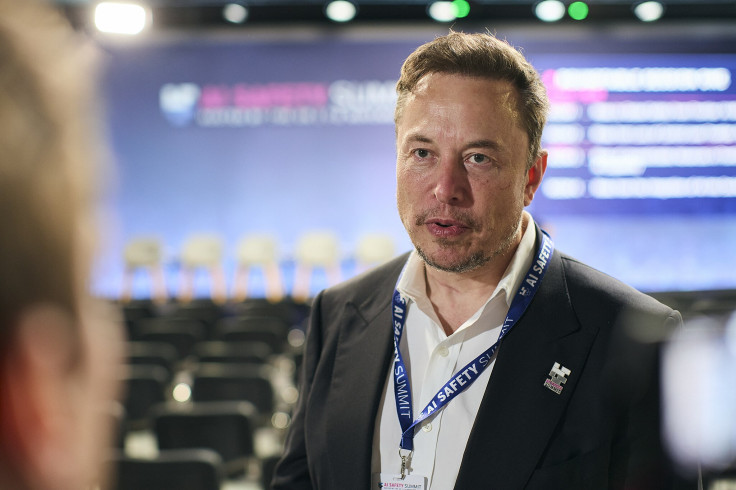Elon Musk's Bold Advice to OpenAI: Raise £0.78 Billion, See Tesla as Cash Cow
Elon Musk's lawyer claim OpenAI's GPT-4 model is a secret, allegedly shared only with Microsoft

OpenAI, the Sam Altman-led AI startup, publicly challenged its co-founder Elon Musk's lawsuit earlier this week. In its response, OpenAI highlighted the billionaire's hypocrisy and his past support for the company's goal.
OpenAI released emails from Musk in which the ever-controversial Tesla boss urged the startup to raise significant funding of at least $1 (£0.78) billion. The company also accused Musk of urging OpenAI to become less transparent by withholding its scientific advancements from the public.
Notably, these claims do not align with Musk's recent claims in his lawsuit against OpenAI, where he accused Altman and President Greg Brockman of breaching their contract and engaging in unfair competition.
Musk's attorneys claim OpenAI's secrecy surrounding the GPT-4 model, which is allegedly shared only with Microsoft, is commercially motivated, not driven by safety concerns. "We intend to move to dismiss all of Elon's claims," the AI startup said.
We are dedicated to the OpenAI mission and have pursued it every step of the way.
— OpenAI (@OpenAI) March 6, 2024
We’re sharing some facts about our relationship with Elon, and we intend to move to dismiss all of his claims.https://t.co/npC4P5pJE7
During The New York Times' DealBook conference, Musk accused OpenAI of deviating from its original mission. "OpenAI should be renamed 'super closed source for maximum profit AI,' because this is what it actually is," Musk said at the event.
The 52-year-old business magnate also noted that OpenAI has transformed from an "open source foundation" to a multibillion-dollar "for-profit corporation with closed source". In contrast, emails from December 2018 show Musk warning OpenAI cofounders against restricting their fundraising efforts.
OpenAI challenges the legality of Elon Musk's lawsuit
In the email, Musk indicated the startup has to make a "dramatic change in execution and resources" if it wants to compete with Google's DeepMind. In one of the emails to OpenAI cofounders Ilya Sutskever, Brockman and Altman, the tech mogul expressed scepticism about the organisation's success without significant funding.
"Even raising several hundred million won't be enough. This needs billions per year immediately or forget it," he wrote. Musk currently heads the automotive company Tesla, astronautics company SpaceX, X Corp. (undisclosed business), and co-founded brain-computer interface company Neuralink. He also spearheads xAI, an AI startup that is seen as a competitor to OpenAI.
In its response to Musk's lawsuit, OpenAI said, "Elon wanted majority equity, initial board control, and to be CEO" of the AI venture. According to a blog post on OpenAI's official website, Musk wanted to become OpenAI's CEO in 2017 as it was changing its structure.
Moreover, Musk's companies have sometimes attracted talent away from OpenAI. For instance, Musk invited Sutskever to join Tesla or xAI after Altman fired him last year. As if that weren't enough, Musk positions xAI's first-ever chatbot, Grok, as competitive with OpenAI's chatbot ChatGPT. Ironically, xAI was accused of using OpenAI's codebase to train Grok.
Lawsuit exposes disagreements over funding and AI goals
OpenAI also reproduced emails from 2018 where Musk endorsed an unnamed sender's suggestion for the AI startup to use Tesla as a "cash cow".
It is worth noting that the contract cited in Musk's lawsuit against OpenAI is not a formal written agreement signed by all founders, according to a report by CNBC.
In his lawsuit, Musk alleges that OpenAI strayed from its original goal of developing artificial general intelligence (AGI) for humanity's benefit as a non-profit. He further argues they transformed the startup into a for-profit company with complex structures, which includes a for-profit entity that he believes holds significant control.
Musk's lawsuit primarily emphasises his role in founding OpenAI, which has become a prominent startup known for its viral AI tools like ChatGPT and DALL-E. OpenAI's public response on Tuesday night echoed the memos sent to its employees last week.
Change your name
— Elon Musk (@elonmusk) March 6, 2024
To ClosedAI and I will drop the lawsuit
— Elon Musk (@elonmusk) March 6, 2024
Adding another twist to the saga, Musk said he would drop his lawsuit against OpenAI if the organisation changed its name to ClosedAI. Responding to an X post about the escalating tension between the parties involved, Musk said OpenAI needed to abandon what he termed "a facade".
© Copyright IBTimes 2025. All rights reserved.






















